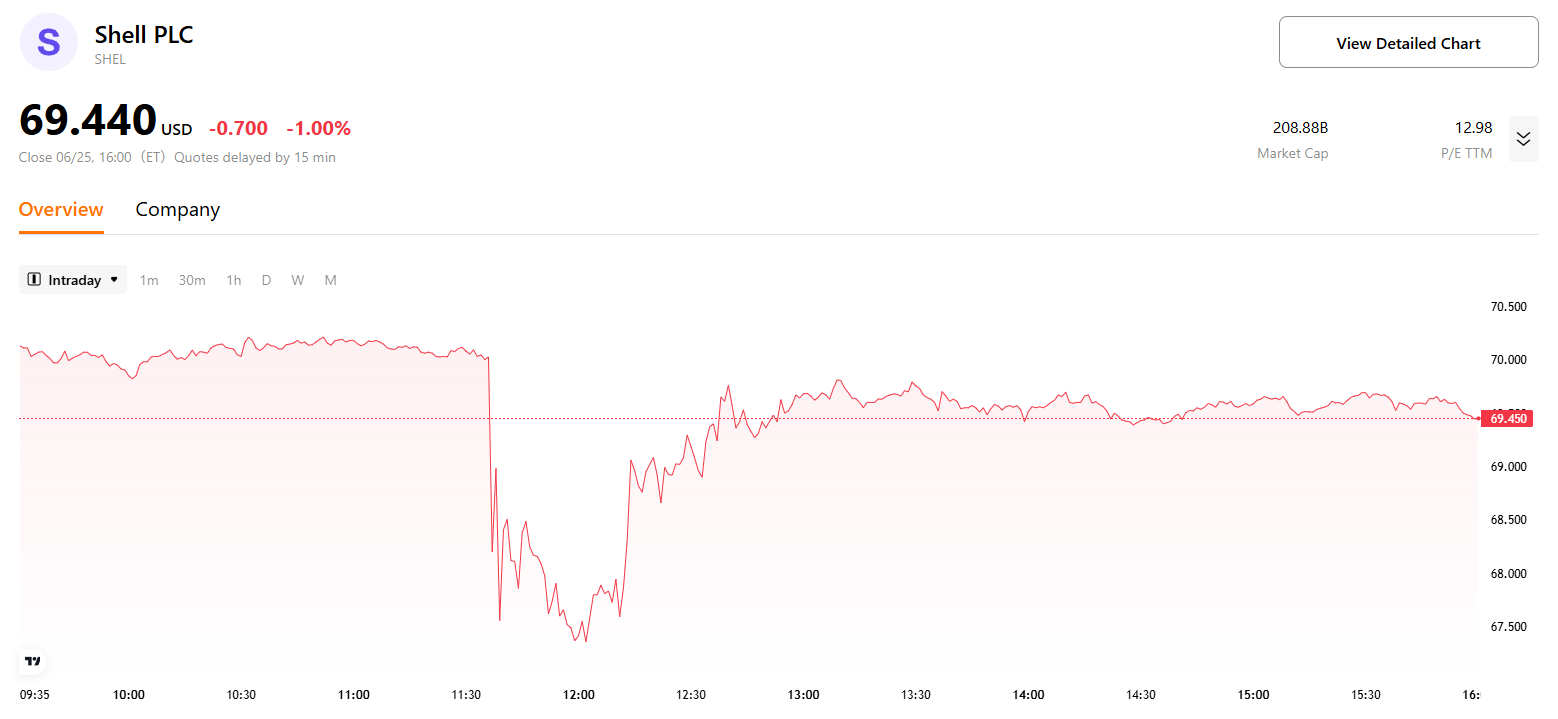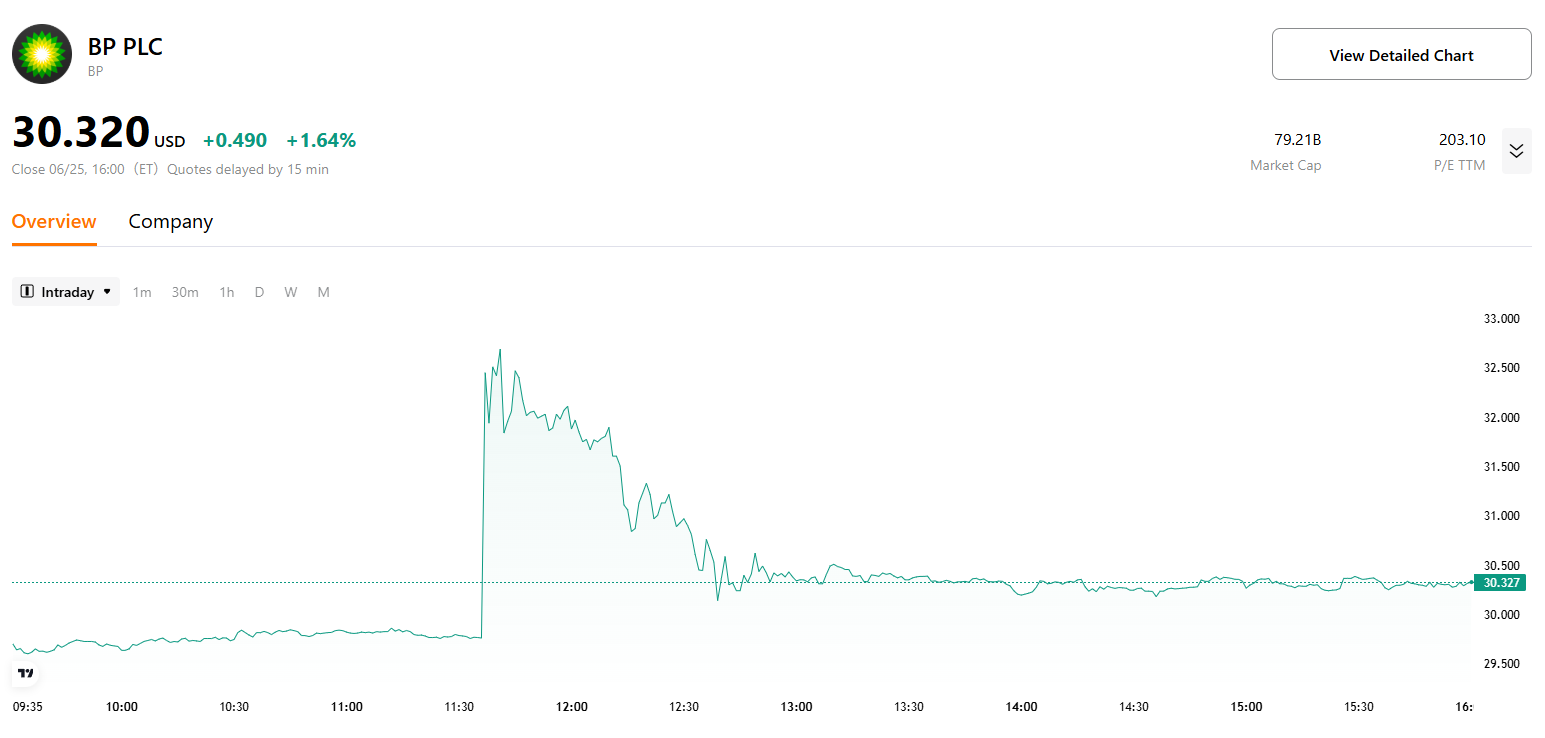Shell Denies $100B BP Takeover Rumors: Mega Merger or Market Speculation?
TradingKey - According to foreign media reports, Royal Dutch Shell (SHEL) has engaged in preliminary talks with British Petroleum (BP) regarding a potential acquisition, causing BP’s stock price to surge by as much as 9.8% during trading.
However, Shell quickly denied the reports through a spokesperson, stating that they were merely "market speculation" and that no formal negotiations were currently underway. By the close of trading, BP’s gains had narrowed to 1.64%, while Shell’s stock price fell by 1%.

(Source: TradingKey)

(Source: TradingKey)
If the deal goes through, this potential merger worth more than $100 billion would set a new industry record. Based on BP's current market capitalization of $80 billion and including a 20% acquisition premium, the transaction size would far exceed ExxonMobil's $73.7 billion acquisition in 1999. The combined company's market value could surpass $2 trillion, approaching the industry leaders ExxonMobil ($2.3 trillion) and Chevron ($2.1 trillion).
It is noteworthy that Shell's denial triggered regulatory constraints on the market. According to UK securities regulations, once a publicly listed company formally denies an acquisition proposal, it enters a six-month "quiet period," during which both parties are prohibited from re-engaging in discussions. This mechanism is designed to prevent insider trading but may also result in missed strategic opportunities.
Shell CEO Wael Sawan has previously emphasized his cautious approach toward large-scale mergers during his tenure, favoring shareholder value enhancement through stock buybacks (averaging over $5 billion annually) and asset divestitures (having already sold its chemical businesses in Europe and North America).
Due to recent adjustments in its business strategy, Shell’s stock performance has outperformed that of ExxonMobil and Chevron. According to TradingKey data, Wall Street analysts rate Shell as a "Buy," with target prices indicating an upside potential of 6.75% from current levels. In contrast, BP has struggled recently with ongoing weak performance due to challenges faced in its aggressive transition towards low-carbon energy amid the impacts of the Russia-Ukraine conflict.
The current rumor is supported by a broader wave of mergers and acquisitions in the energy sector. Deals such as ExxonMobil's $60 billion acquisition of Pioneer Natural Resources and Chevron's $53 billion takeover of Hess reflect how energy giants are integrating to respond to industry transformation.



